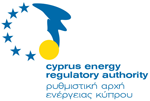Conference Conclusions
The 1st Conference on Power Options for the Eastern Mediterranean Region (POEM 2012) was successfully held on the 19-21 of November 2012 at the Le Meridien Limassol Spa & Resort Hotel in Limassol, Cyprus. The Conference was co-organized by the Cyprus Employers and Industrialists Federation (OEB), the Electricity Authority of Cyprus (EAC), the American University of Sharjah (AUS) and was endorsed by the Cyprus Energy Regulatory Authority (CERA), the Natural Gas Public Company (DEFA), the Renewable Energy Sources (RES) and Energy Saving Special Fund, the University of Cyprus (UCY) and the Cyprus University of Technology (CUT). The Conference was attended by more than 250 participants representing the local and foreign press of the Region, the stakeholders of the political and energy field, the experts of the energy industry, engineers, economists, investors, academics, as well as oil and gas exploration stakeholders. In the Conference, the two Presidential Candidates for the 2013 Presidential Elections Candidates, Dr. George Lillikas and Dr. Stavros Malas, as well as the representative of Mr. Nicos Anastasiades, Mr. Averof Neophytou, were honorary speakers. Furthermore, Mr. Nicolas Papadopoulos, Chairman of the Financial and Budgetary Committee, addressed the Conference, whereas a keynote lecture was given by Mr. Nicos Rolandis, Former Ministry of Foreign Affairs and Former Minister of Commerce and Industry.
Dr. George Lillikas stressed the valuable contribution of all Cyprus Governments so far and specifically of all Ministers of Commerce, to the national effort for the exploitation of the hydrocarbon resources of Cyprus. He suggested the establishment of a national hydrocarbons corporation under national law, which would be responsible for all aspects of hydrocarbon resources administration based on the Norwegian model. He also warned that the issue of hydrocarbons should not be part of the Cyprus problem negotiation talks and that a proposed natural gas connection pipeline through Turkey, would tie the Cyprus Republic under Turkey's political aspirations in the area. Finally, Dr. Lillikas mentioned that the proceeds from the second round of the Cyprus natural gas licensing process should not be provided towards the Troika loan repayment, but should instead be used for the construction of the necessary natural gas infrastructure for the conveyance of natural gas to the Cyprus and European markets through a Cyprus-Israel-Egypt cooperation.
In his speech, Dr. Stavros Malas suggested that the discovery of natural gas resources in Cyprus is an opportunity for further investment in research and development activities in Cyprus and for the creation of new jobs. Further, education and training programs in the new technologies to be developed should now be offered to the Cyprus future scientific community to enhance their technological know-how. Dr. Malas also mentioned that the hydrocarbon resources should be part of the Cyprus problem negotiation process, since the potential financial benefits of hydrocarbon exploitation for the whole of Cyprus would mean that increased pressure would be exerted from Turkish Cypriots to their political leadership and to the Turkish Government for finally working positively towards the settlement of the Cyprus problem.
Mr. Averof Neophytou conveyed the views of Mr. Anastasiades for the importance of natural gas exploitation for Cyprus. Mr. Neophytou stressed the contribution of all Cyprus Governments towards the achievement of this goal and mentioned that the establishment of a national hydrocarbons corporation was a necessary step. According to Mr. Neophytou, the Norwegian model was a good example to be followed for the management of the Cyprus natural gas resources.
Mr. Nicolas Papadopoulos said that research and development should be further exploited in Cyprus for the creation of new jobs and for the competitive training of the new Cypriot scientists in new technologies dealing with natural gas management. He also stressed that concerning the exploitation and distribution of the profits from natural gas, the Norwegian model should be followed in the case of Cyprus. As a first step, Mr. Papadopoulos supported the idea of the establishment of a Cyprus national hydrocarbon corporation by national law, which would be responsible for the administration of these profits.
Finally, in his speech, Mr. Nicos Rolandis took a historical perspective of the most important milestones and events leading to the discovery of natural gas resources in the island of Cyprus. Specifically, Mr. Rolandis highlighted the difficulties and the political pressure that were exerted from foreign decision centers to the previous Cyprus Governments for not proceeding with the exploitation of hydrocarbons off the coast of Cyprus, and to the actions that led to the signing of important treaties with neighboring countries, defining the boundaries of the Exclusive Economic Zone of each country.
As the Conference Chairman Dr. Andreas Poullikkas mentioned, during his presentation, the aim of the Conference is to become an important meeting point for ideas and knowledge sharing on the technical, economic and regulatory implications of energy production in the Eastern Mediterranean region. In an international dimension, the Conference acted as a catalyst on the transfer of oil, gas and RES technology advancements and best practices from developed energy markets to the region. Moreover, the Conference facilitated the exploration of future business opportunities between international and regional energy sector enterprises, in the field of oil and gas energy infrastructure and RES projects. Finally, the Conference highlighted the necessity of research and development in the further advancement of the energy sector in the Eastern Mediterranean region.
Focusing on a regional and local dimension, the Conference provided insights into how local energy players can accommodate the sustainable use of the potential Eastern Mediterranean region's hydrocarbon reserves together with the penetration of solar energy systems in the power electricity generation industry. Moreover, local business representatives had a chance to be updated on the latest developments in RES technologies, to evaluate the commercial and financial aspects of these technologies as well as to be updated on the energy projects which are expected to be developed in Cyprus during the following years. Through the Conference, the Cyprus companies derived ideas and best practices regarding the best way of exploitation and management of natural gas as a source of raw material for industry by experts who already operate commercially in this field abroad. Furthermore, with the Workshops and the Exhibition that were held in parallel to the main Conference event, the opportunity for the development of potential business opportunities between local and international businesses in the related fields of energy infrastructure development, RES, and exploitation of oil, natural gas and of industrial scale raw materials derived from natural gas, was provided.
Concerning the exploitation of natural gas as a future source of raw materials, significant challenges lie ahead for the Cyprus industrial sector. Historically, industry in Cyprus always suffered from a serious lack of indigenous raw materials, which was a necessary prerequisite for the growth of industries able to be competitive in the international markets. However, the discovery of significant natural gas resources means that Cyprus will now possess, in large quantities, an important raw material. Natural gas, as raw material, is the foundation for the development of industries producing chemical materials and other products with high added value. Therefore, the use of natural gas as a raw material will undoubtedly lead to a differentiation and diversification of the Cyprus economy with the advent of a strong chemical industrial sector of primary importance and with a potential international presence. This will mean that the economy will no longer be solely dependent on the financial services sector. In the near future, and in the case that the competitiveness of the newly founded Cypriot chemical industries is enhanced, Cyprus will have the opportunity to dynamically enter the European and international market as an important exporter of chemical products in a scale unprecedented by Cyprus standards.
Finally, the Conference stressed that financially attractive temporary solutions for the importation of natural gas on the island either through Israel or through the Aphrodite plot should be investigated. Concerning the issue of electricity market rules, it was concluded that these should take into consideration the small and isolated Cyprus electricity generation system as well as the technical limitations and problems caused by the widespread integration of renewable energy sources. The rules should thus impose technical limits and constraints so as to allow the further penetration of renewables and of independent power producers without compromising the security and reliability of the current generation system.
















